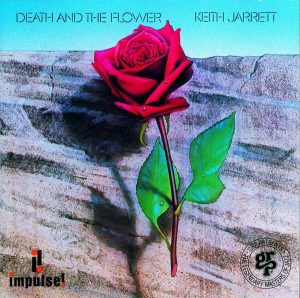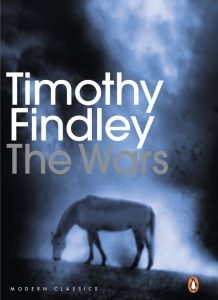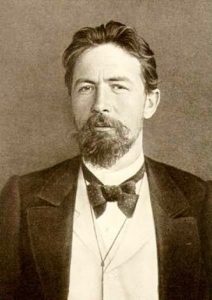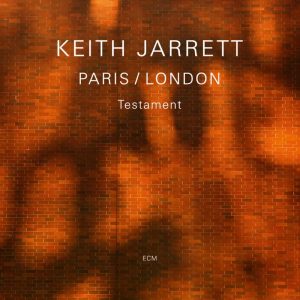Pilgrimage #2

Pilgrimage: – a journey made to a sacred place as an act of religious devotion
– life regarded as a journey, especially to a future state of blessedness*
++++++++++++++++++++++++++++++++++
I encountered the sacred in the music of Keith Jarrett the first time I heard it. It was 1974 and I had just started a new job in Winnipeg and life in a new country. A striking red rose was resplendent on the cover of the LP, with perhaps, a distant sandstone canyon in the background. The gentle, hymn-like piano chords of the piece “Prayer” floated above a gentle bass and a shimmering suggestion of respectful percussion. I found myself in the presence of something profound. 
I noted the performer’s name and decided I should get to know more about him. Within a year, the recording of his Köln Concert had become an international sensation. Like a classic book, it remains in print today. If this music is jazz then Gustav Mahler wrote pop songs.
Keith Jarrett composes in performance with improvisations rich in extraordinary technical skills and a mesmerizing and complex musical imagination. As I would learn, there are often chaotic angry outbursts that eventually transform into something like solace.
(The first time I heard Keith Jarrett in performance was in 1989 in Toronto. There was no improvisation that night. He played Bach’s Goldberg Variations on a harpsichord. I had learned about the event by chance as I was driving back to Toronto from Cannington after recording an interview with the late Timothy Findley. He and his partner, William Whitehead, lived in an old farmhouse called Stone Orchard. “We called it that in perfect innocence – thinking to pay some tribute to my favourite writer, Anton Chekhov, whose play The Cherry Orchard might be performed in its rooms and in its gardens.” (Inside Memory – Pages from a Writer’s Workbook, 1990) 
In every Chekhov play a character says: “If you only knew…If only you could know…” Pilgrims understand.
I managed to get a ticket to hear the creative artist who had become important to how I listened and also to what I was listening for. That night at the St. Lawrence Centre, my pilgrimage continued as Chekhov and Jarrett and Bach and the author of that unforgettable novel, The Wars somehow joined hands.
In 1991 I travelled to New York to hear Jarrett in a solo piano concert at Avery Fisher Hall. I was on a mission to encourage him to agree to a feature-length interview with CBC Radio. Backstage, after two-hours of improvised violence that resolved into a mystical grace-filled acceptance, he was not in a conversational frame of mind. But he didn’t say no.
Pilgrims know they sometimes need to return.
Two years later he was in Toronto, this time with his trio. I was told I could have three minutes to repeat the pitch for an interview after the concert. I was in the company of the brilliant composer/performer/broadcaster Peter Togni, who would do the proposed radio interview. Inexplicably, we found ourselves on the stage of Roy Thomson Hall as Jack de Johnette dissembled his drums and Gary Peacock slid his bass into its protective cover. For a second time, Jarrett didn’t say no.

Anton Chekhov
I was no longer on that mission the next time I heard him play. It was Carnegie Hall in 2005. He began with fractured, violent outbursts of musical fragments vying for some kind of resolution. The recording of this concert captures the difficult journey that he challenges any listener to join. Eventually, he discovers a still, silent voice in the form of a never-before-heard hymn.
Since then, I’ve listened to solo concerts recorded in Tokyo, Paris, London, Rio de Janeiro, Modena, Turin, Ferrara, Genoa, and Venice. Each begins with his commitment to search for something through music. Jarrett describes one of the concerts this way: “though the beginning was a dark, searching, multi-tonal melodic triumph, by the end it somehow became a throbbing, never-to-be-repeated, pulsing rock band of a concert (unless it was a church service, in which case, Hallelujah!)” **

Audience members bring expectations as pilgrims carry hope.
At the Jesuit Martyrs’ shrine in Midland, pilgrims are invited to enter the sacred space where saints once walked. At the Holy Mountain Monastery, beside the Donets River, which he visited in 1887, Anton Chekhov gives a musical description of hopeful pilgrims as “a living hotch-potch full of movement, sound, and the most original confusion… The singing of the Easter hymns, the ringing of the bells, the splash of oars in the water, the calls of the birds, all mingled in the air into something tender and harmonious.” ***
Expectation and hope of tenderness drive the pilgrim on.
Books, music, and art are the essentials for these journeys. When one of Chekhov’s early interpreters wrote this about him, he could easily be describing Jarrett ‒ and, indeed, Bach and Findley ‒ in their lifelong creative quests. William Gehardie (1895-1977) says he “distilled beauty out of a life by seeing the eternal aspect of ephemeral existence.” He describes Chekhov’s “magic dynamic of art” as the mingled vision and experience of life as it is, not inflated by the illusion of hope or shrunk and distorted by fear, but accepted in its own infallible proportions. It is the raising of time into the light of eternity, into the glowing amber of the spirit, to become the life incorruptible that God and men alike can love.” ****
The pilgrimage continues. A journey of invitation, for women as well as for men.
++++++++++++++++++++++++++++++++++++++++++++++++
* Shorter Oxford English Dictionary
** Notes to Testament – Concerts in Paris and London, ECM, 2009
*** Uprooted – An Incident of My Travels, 1887.
**** God’s Fifth Column – A Biography of the Age 1890-1940, William Gerhardie, 1981
Unless otherwise indicated, photos are courtesy of the author.




Peter Bisson, SJ
Posted at 10:22h, 15 NovemberThank you very much Kevin!
Robert Czerny
Posted at 14:18h, 15 NovemberThank you for a challenging, enlightening essay. Several of Chekhov’s short stories centre on religious occasions; ignoring theology and doctrine, they portray the transcendence that can inhabit everyday actions and often extremely humble conditions. You have articulated this bursting-in of transcendence very well.
Marie-Stéphane Bernard
Posted at 10:18h, 04 DecemberThank you so much Kevin. I am a big fan of your book:”Henri Nouwen, his life and spirit”.